Exit interviews are a valuable tool for companies to understand the reasons behind an employee’s departure and to identify areas for improvement within the organization. They provide an opportunity for employees to share their thoughts, feedback, and ideas, and can help companies to retain top talent and improve the overall employee experience.
In this article, we’ll explore the importance of exit interviews and how they are conducted. We’ll also provide tips and best practices for conducting effective exit interviews, and discuss the benefits of using an exit interview template. Whether you’re an HR professional or a business owner, this article has everything you need to understand and effectively use exit interviews.
Table of Contents
What is an exit interview template?

An exit interview template is a pre-designed document that can be used to conduct an exit interview. It includes all of the necessary formatting, layout, and design elements, and can be customized with the specific details and elements of the interview. Exit interview templates can be created in a variety of software programs, such as Microsoft Word or Adobe Photoshop, and can be printed or saved as a digital document.
Exit Interview Templates
An exit interview PDF poses thoughtful questions to understand why employees leave. It covers experiences, challenges, and suggested improvements. Insights gained help strengthen the workplace.
The multipage PDF asks about reasons for resignation, views on work environment, manager relationships, compensation satisfaction, and career growth opportunities. Open-ended prompts encourage candid sharing about disappointments and highlights.
HR analyzes completed exit interview PDFs to identify common themes around turnover. They pinpoint problematic areas needing change. The leaver’s perspective provides valuable input to enhance recruitment, retention and advancement. An exit interview PDF delivers a meaningful last impression and shapes better employee experiences.
Purpose of Exit Interviews
The purpose of an exit interview is to gather feedback and information from an employee who is leaving the company. Exit interviews provide an opportunity for employees to share their thoughts, feedback, and ideas about their experience at the company, and can help the company to identify areas for improvement. Exit interviews can be conducted by a human resources representative, a manager, or another designated individual.
There are several benefits to conducting exit interviews, including:
Understanding the reasons behind an employee’s departure: Exit interviews can help the company to understand the reasons behind an employee’s departure, whether it be due to a better job opportunity, a negative work environment, or something else. This information can be valuable in helping the company to retain top talent and improve the overall employee experience.
Identifying areas for improvement: Exit interviews provide an opportunity for employees to share their thoughts and feedback about the company, which can help the company to identify areas for improvement. This can include things like company culture, policies, procedures, and management.
Improving the onboarding process: Exit interviews can help the company to identify any issues or challenges that new hires faced during the onboarding process, and to make improvements to the process in the future.
Maintaining a positive reputation: Exit interviews can help the company to maintain a positive reputation by showing that the company values employee feedback and is committed to continuous improvement.
Retaining top talent: By understanding the reasons behind an employee’s departure, the company can take steps to retain top talent and prevent future departures.
Improving employee morale: By showing that the company values employee feedback and is committed to continuous improvement, exit interviews can help to improve employee morale and create a more positive work environment.
Maintaining a positive relationship with former employees: By conducting an exit interview in a professional and respectful manner, the company can maintain a positive relationship with former employees, who may be valuable connections in the future.
Reducing turnover: By identifying the reasons behind employee departures and taking steps to address them, the company can reduce turnover and improve the overall employee experience.
Best ways to conduct an exit interview
The best method for conducting an exit interview will depend on the specific needs and resources of the company, as well as the preferences of the employee.
There are several methods for conducting exit interviews, including:
In-person interviews
In-person interviews are the most traditional method of conducting exit interviews. They allow for face-to-face communication and the opportunity to ask follow-up questions, but may require more time and resources.
Telephone interviews
Telephone interviews are a convenient and cost-effective method of conducting exit interviews, as they do not require the employee to come into the office. They may not be as effective as in-person interviews for gathering detailed and nuanced feedback, however.
Video conference interviews
Video conference interviews allow for face-to-face communication without the need for the employee to come into the office. They may be more convenient and cost-effective than in-person interviews, but may require additional technology and resources.
Online surveys
Online surveys are a quick and easy method of conducting exit interviews, as they can be completed by the employee at their convenience. They may not be as effective as in-person or telephone interviews for gathering detailed and nuanced feedback, however.
Email interviews
Email interviews allow for written communication and the opportunity for the employee to take their time responding. They may be less effective than in-person, telephone, or video conference interviews for gathering detailed and nuanced feedback, however.
Paper surveys
Paper surveys can be mailed to the employee or left for them to complete at their convenience. They may be less convenient and more time-consuming than online or email surveys, but may be more effective for gathering detailed and nuanced feedback.
Group exit interviews
Group exit interviews involve conducting exit interviews with multiple employees at the same time. This can be a cost-effective and efficient method of conducting exit interviews, but may not be as effective for gathering individualized feedback.
12 Exit Interview Questions You Should Ask
Why are you leaving the company?
This question can help the company understand if there are any issues or problems that led to the employee’s decision to leave.
What did you like most about working for the company?
This question can help the company identify its strengths and areas of success.
What did you like least about working for the company?
This question can help the company identify areas for improvement and address any issues that may have contributed to the employee’s decision to leave.
What could the company have done differently to keep you?
This question can help the company understand what it could have done to retain the employee.
Do you have any suggestions for improvements that the company could make?
This question can help the company identify areas for improvement and gather valuable feedback from departing employees.
Would you recommend this company to others as a good place to work?
This question can help the company gauge its reputation as an employer and identify areas for improvement.
Is there anything else you would like to add or share about your experience working for the company?
This open-ended question can give employees the opportunity to share any additional thoughts or concerns they may have.
How would you describe the company culture?
This question can help the company understand how its culture is perceived by employees and identify any areas for improvement.
How well did you feel supported by your manager and the company?
This question can help the company understand how well it supports and engages its employees.
How did you feel about the company’s communication and transparency?
This question can help the company understand how effectively it communicates with its employees and whether there are any areas for improvement.
How did you feel about the company’s career development and advancement opportunities?
This question can help the company understand how it supports the career growth of its employees and identify any areas for improvement.
How did you feel about the company’s work-life balance policies?
This question can help the company understand how well it supports the well-being and work-life balance of its employees.
Conclusion
In conclusion, exit interviews can serve as a valuable opportunity for both the departing employee and the company to reflect on the employee’s time with the organization. By gathering feedback and insights from the employee, the company can identify areas for improvement and work towards creating a positive work environment.
Additionally, exit interviews can help maintain a positive relationship with former employees and allow the company to learn from their experiences. Ultimately, the purpose of an exit interview is to gather constructive feedback and use it to improve the company’s operations and culture.
FAQs
What are typical exit interview questions?
Common exit interview questions cover reasons for leaving, views on compensation and benefits, experience with manager and coworkers, overall work satisfaction, challenges faced, suggested improvements for the role and company, and whether the employee would consider returning to the company someday.
What is exit format?
The exit interview format typically involves a face-to-face meeting, phone call, or online survey. It is a structured conversation guided by pre-determined questions related to the employee’s tenure and departure. Confidentiality is assured and openness encouraged.
What not to say in exit interview?
Avoid complaining, making negative remarks about individuals, or sharing confidential information during an exit interview. Keep it professional and focused on constructive feedback to help the company improve. Don’t burn bridges.
Is it good to have an exit interview?
Yes, exit interviews benefit both the employee and employer. Employees can provide honest feedback and get closure. Companies gain insights into improving retention, work culture, and filling gaps. Maintaining goodwill benefits both parties.























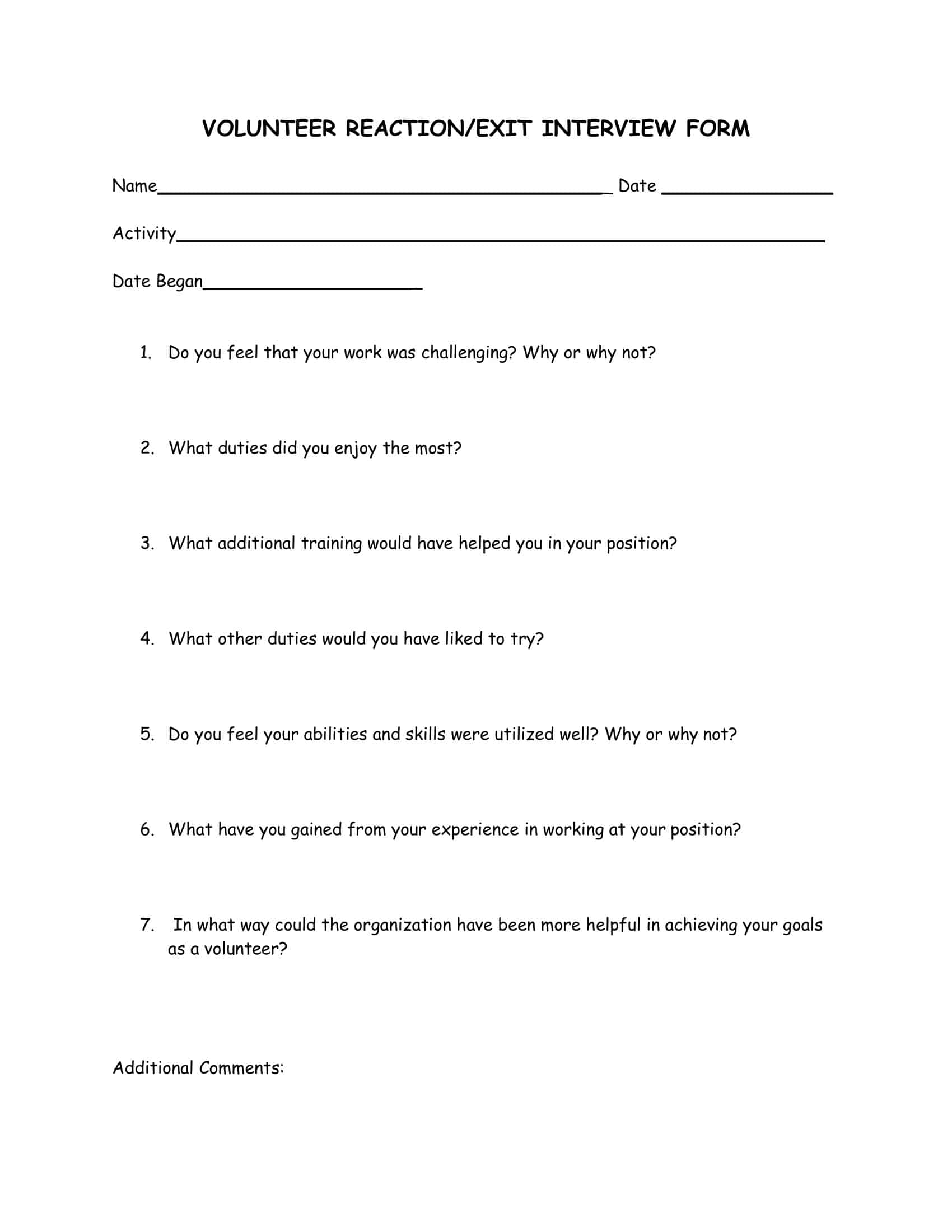
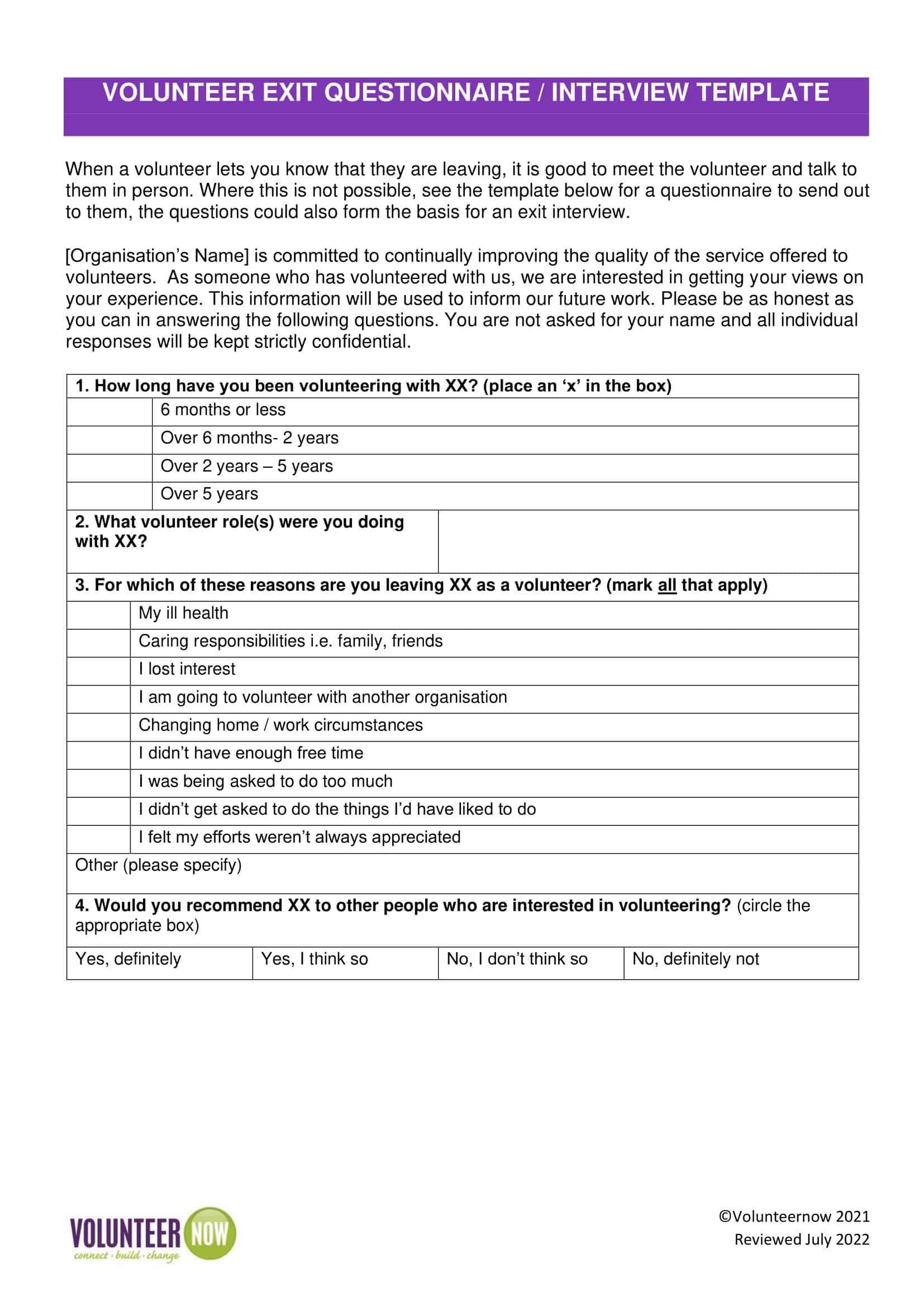



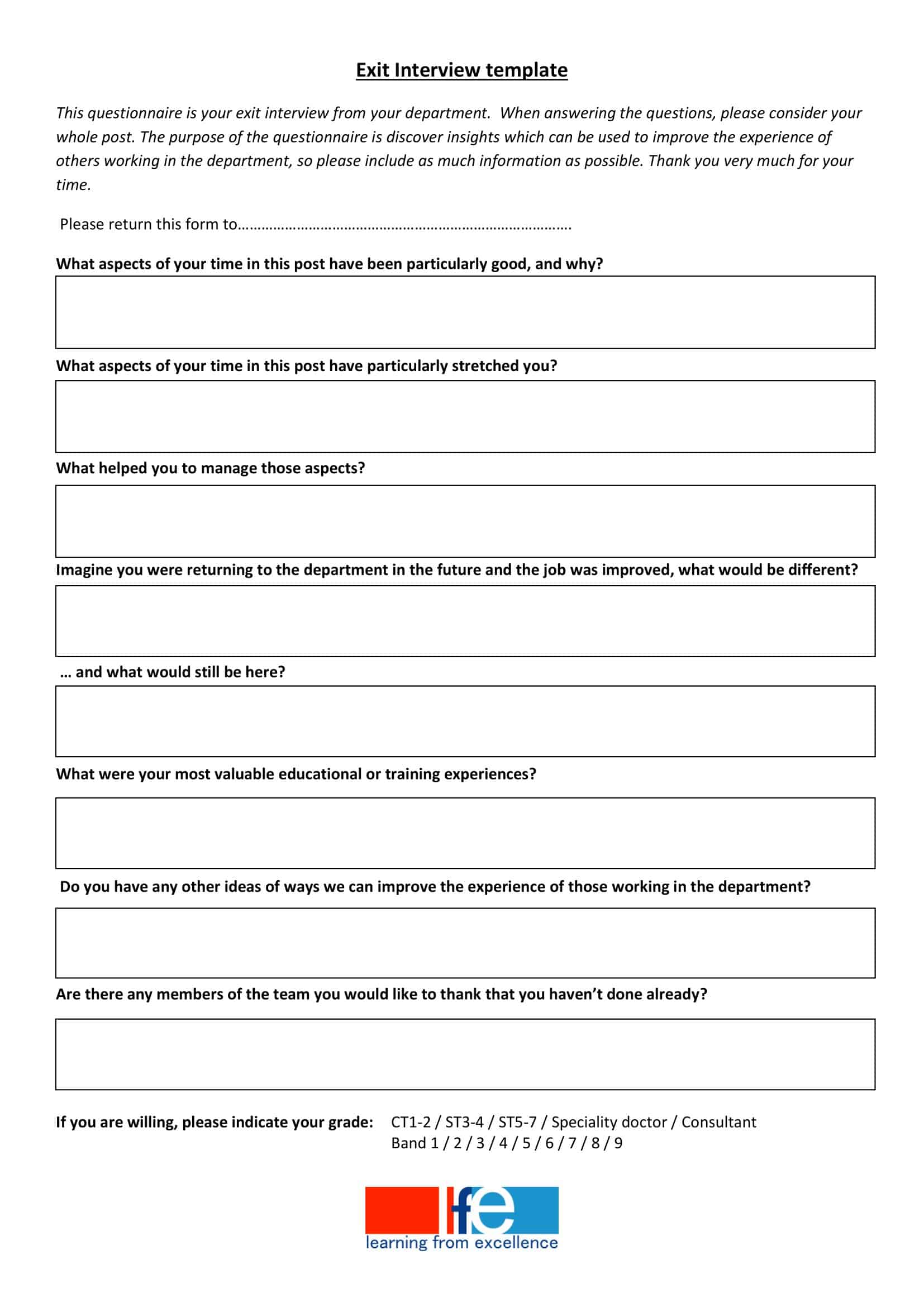



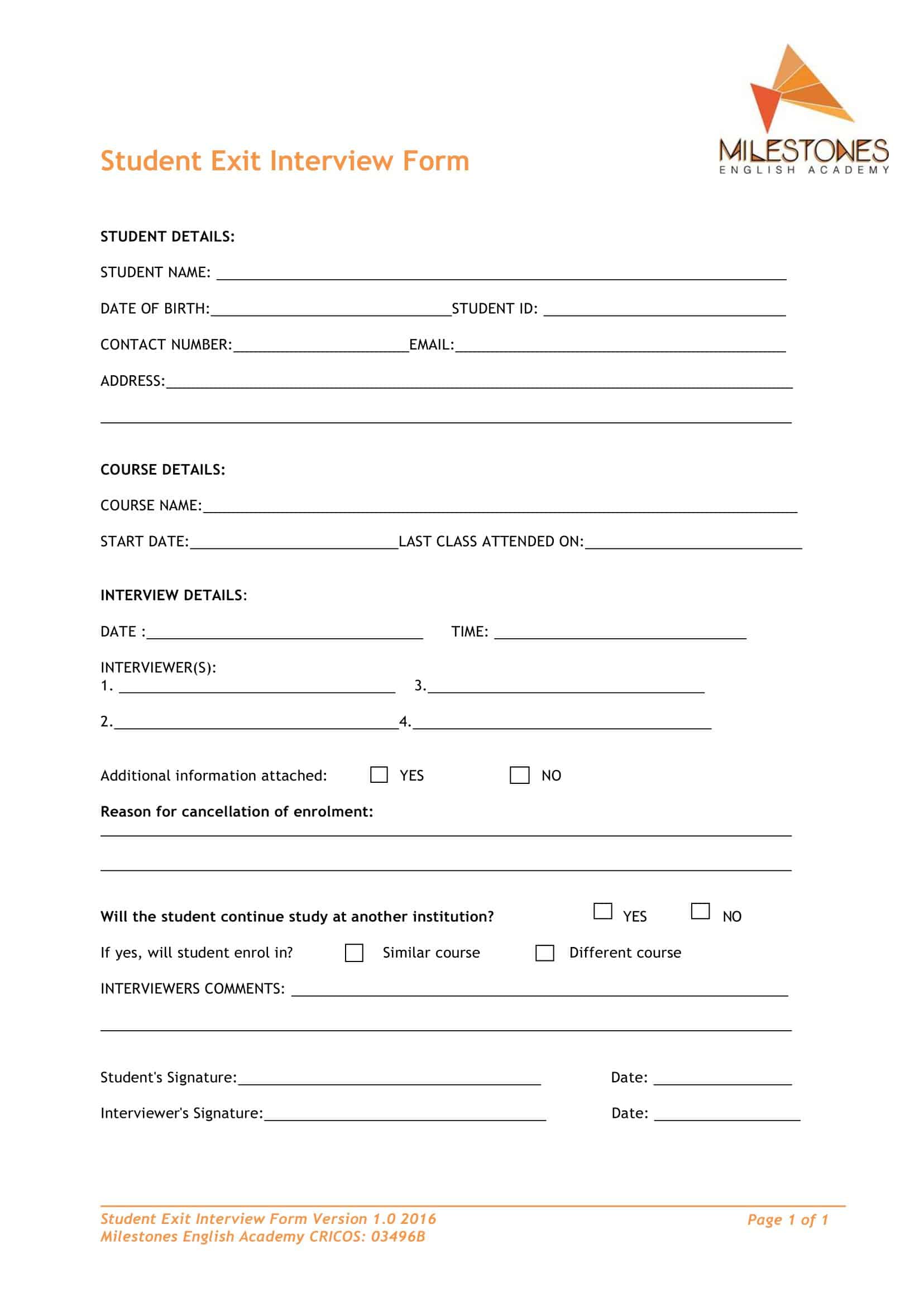





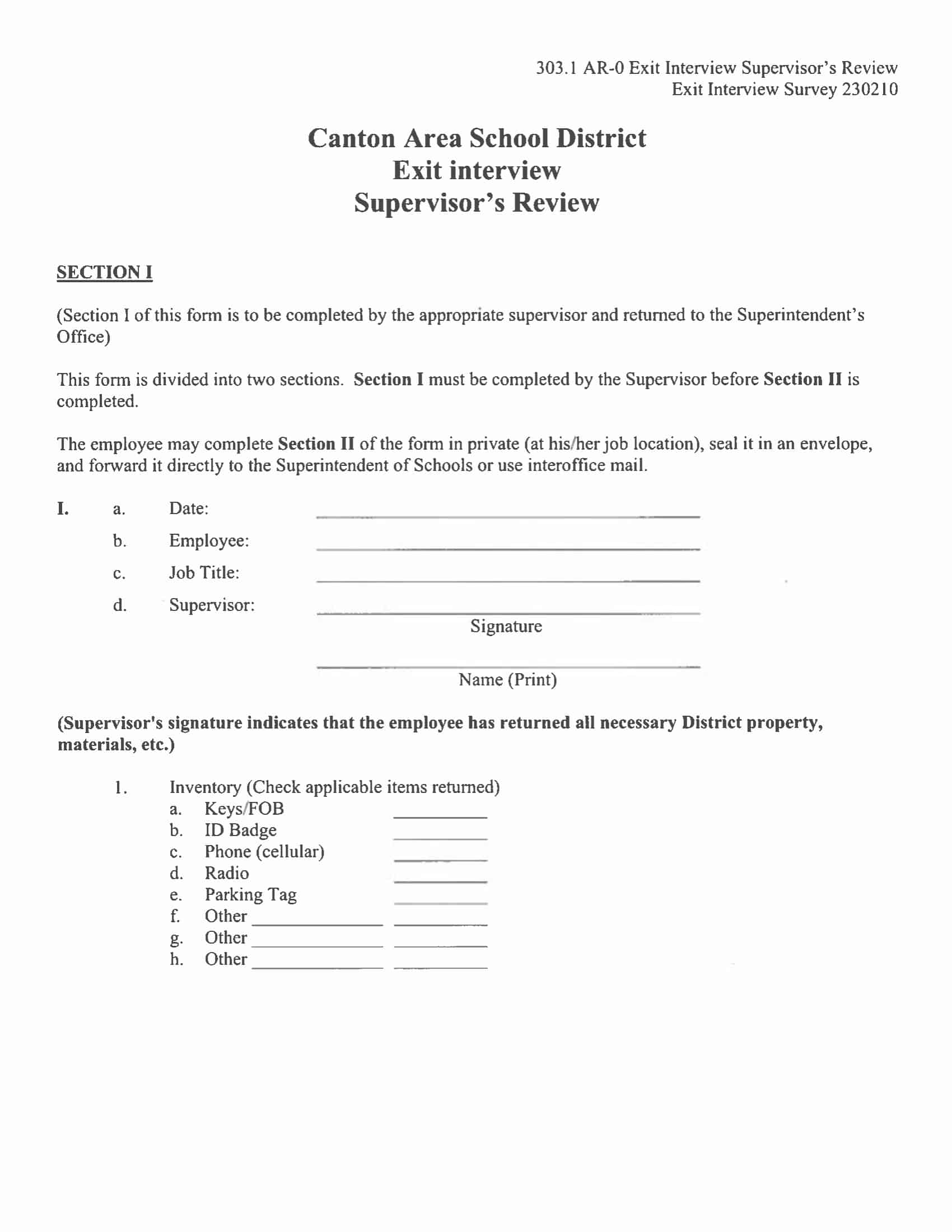


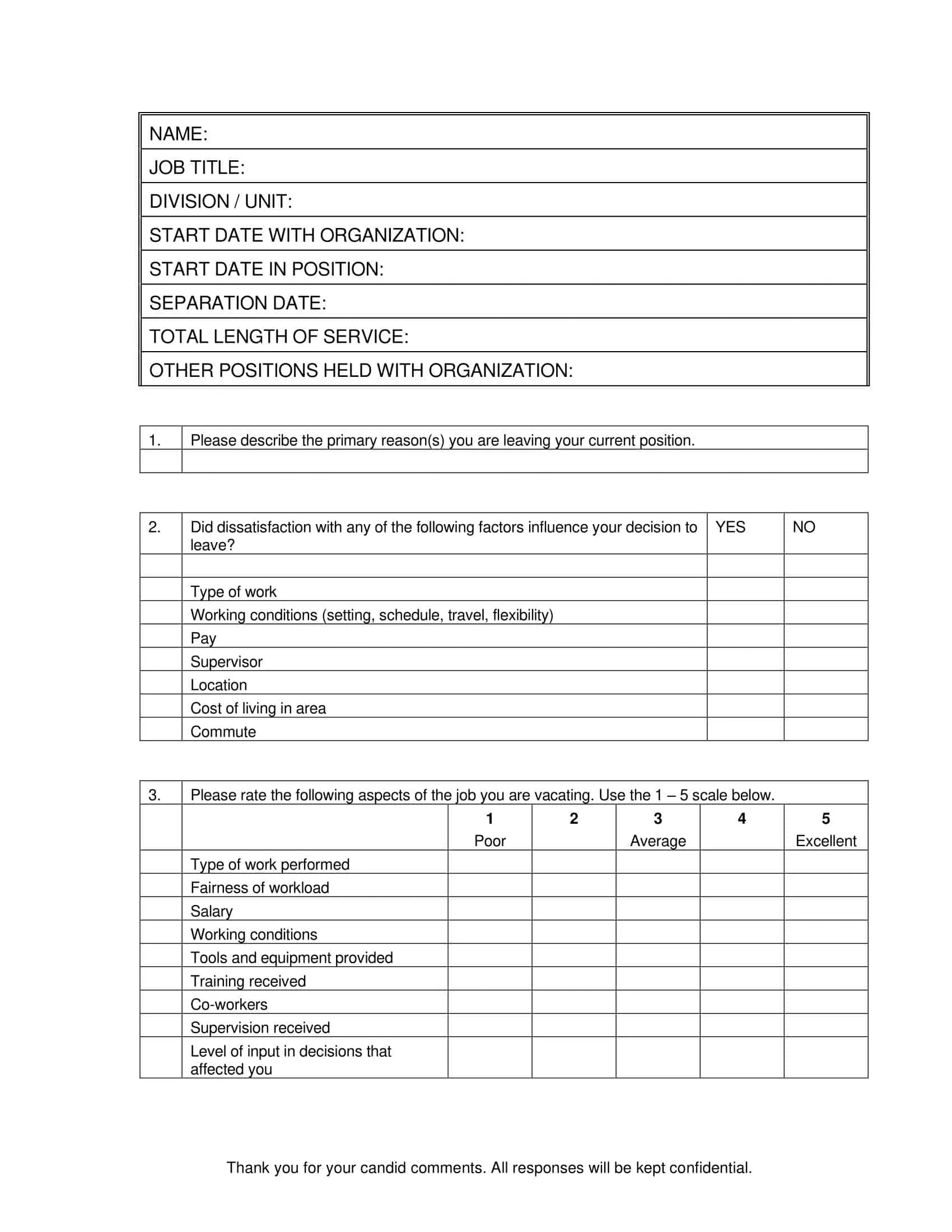

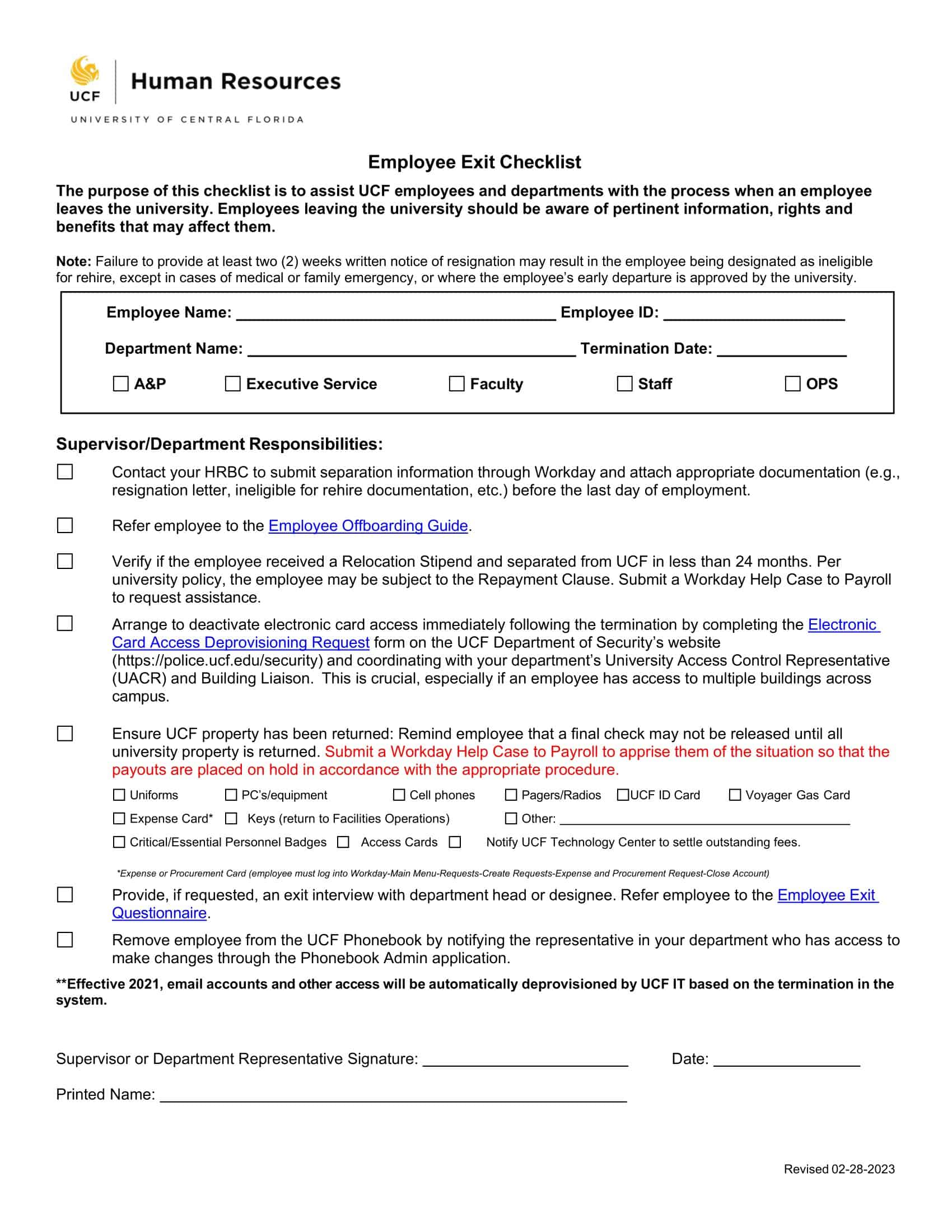

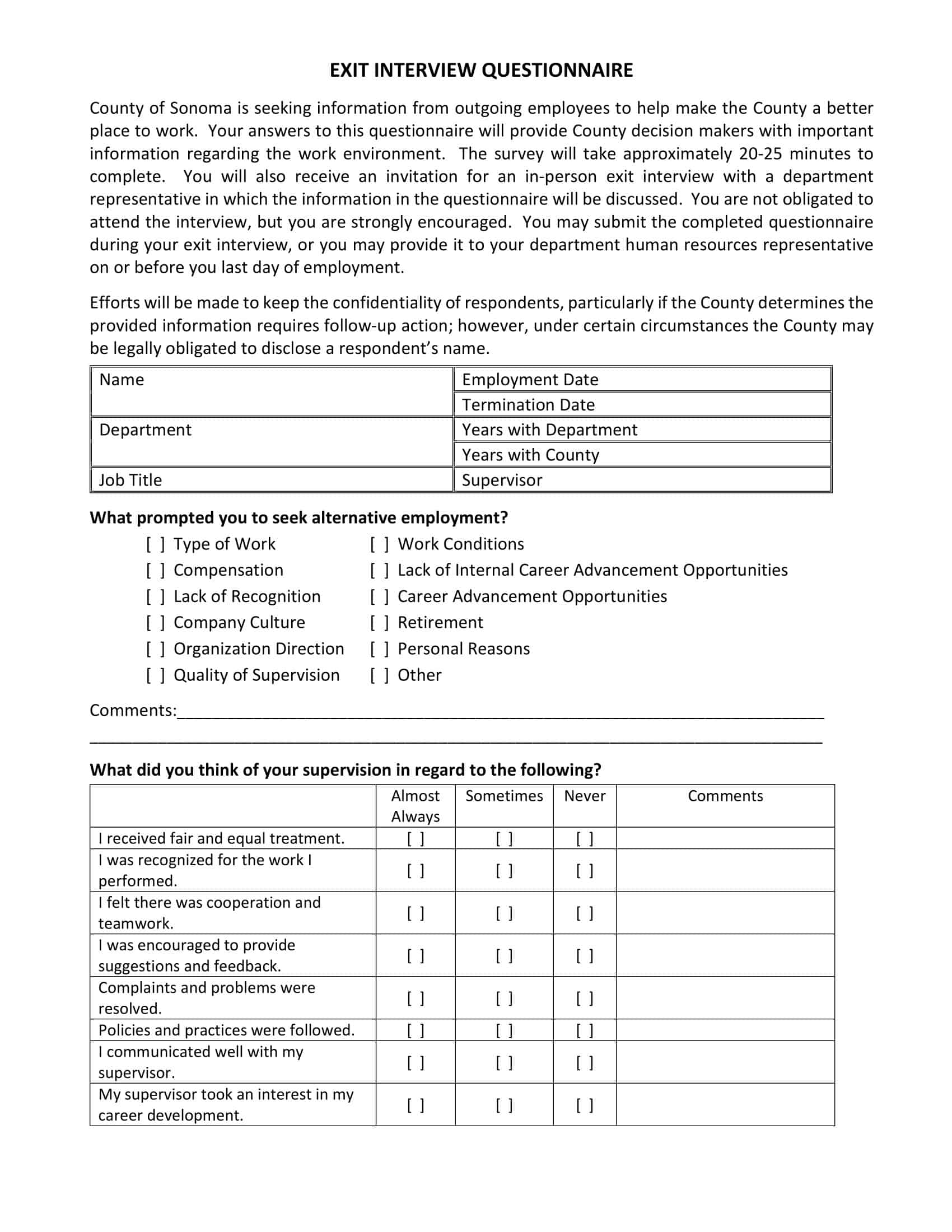
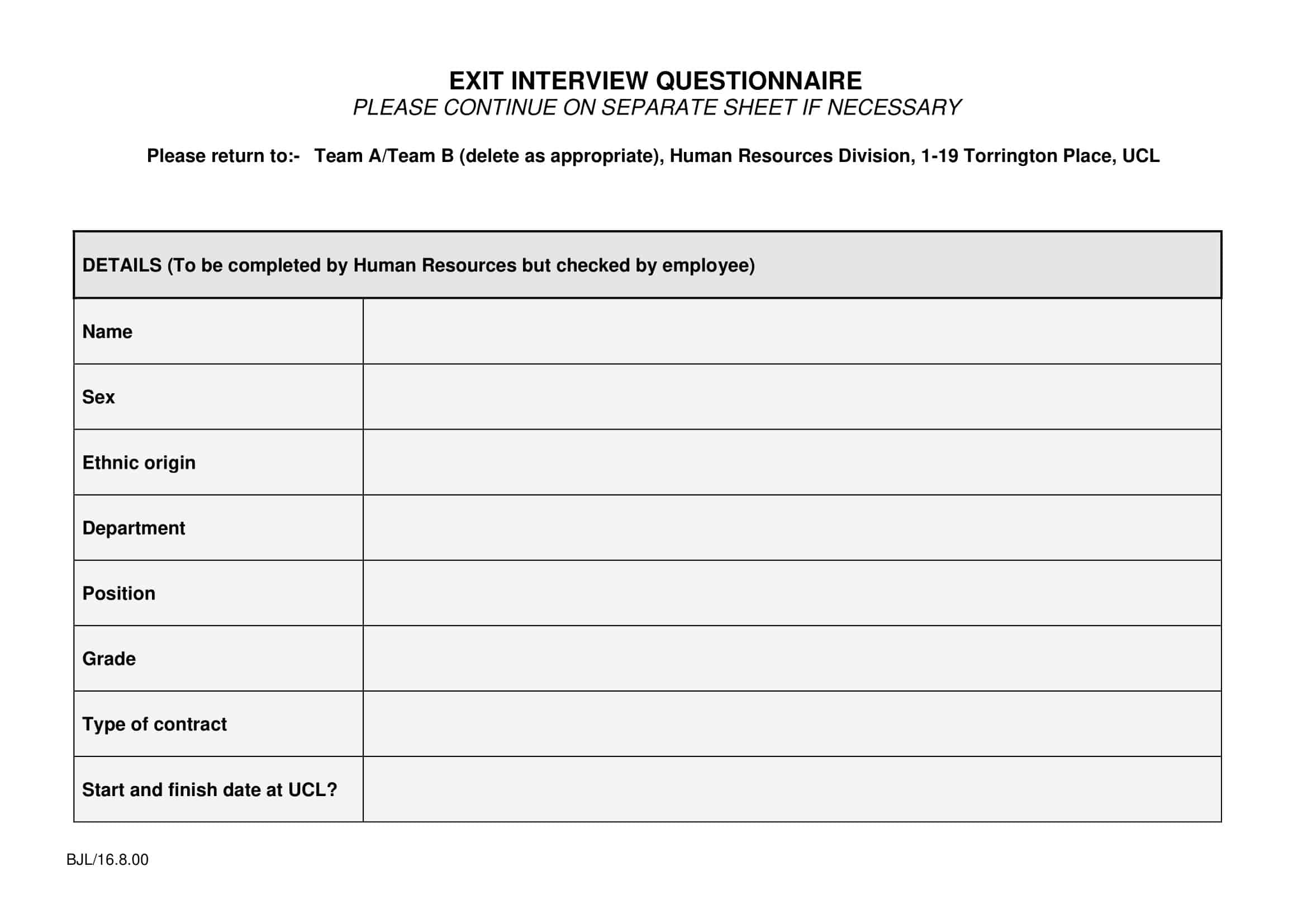

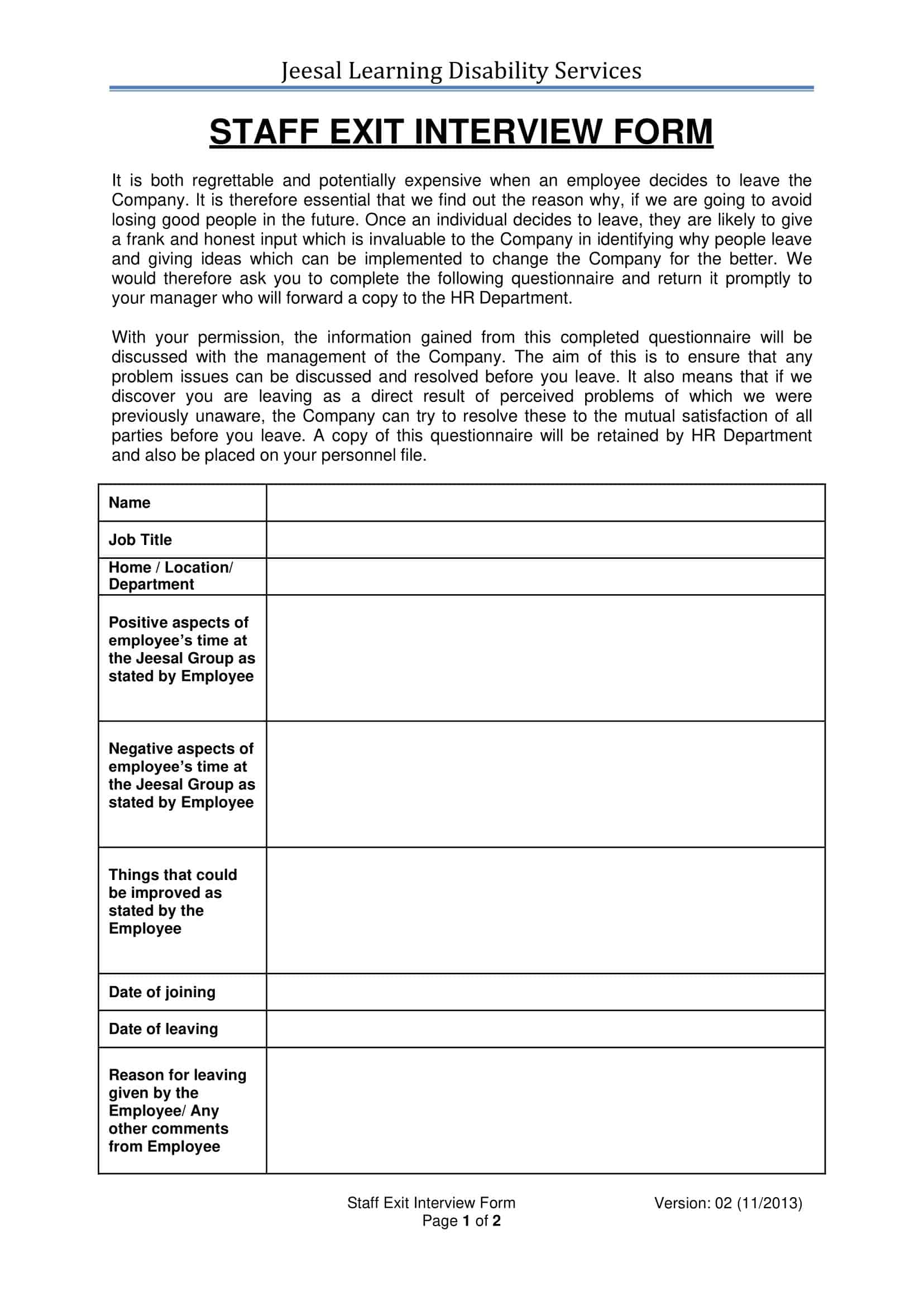
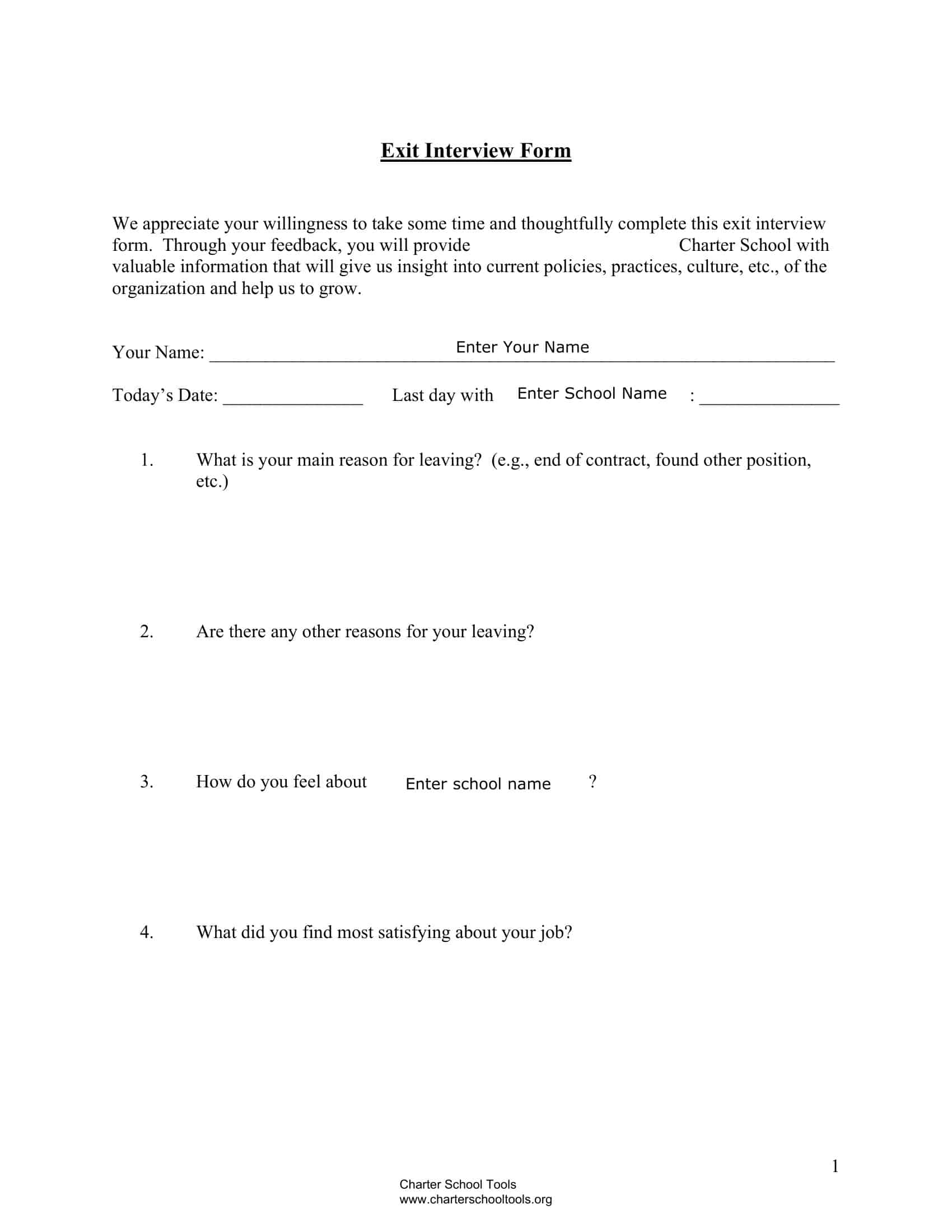
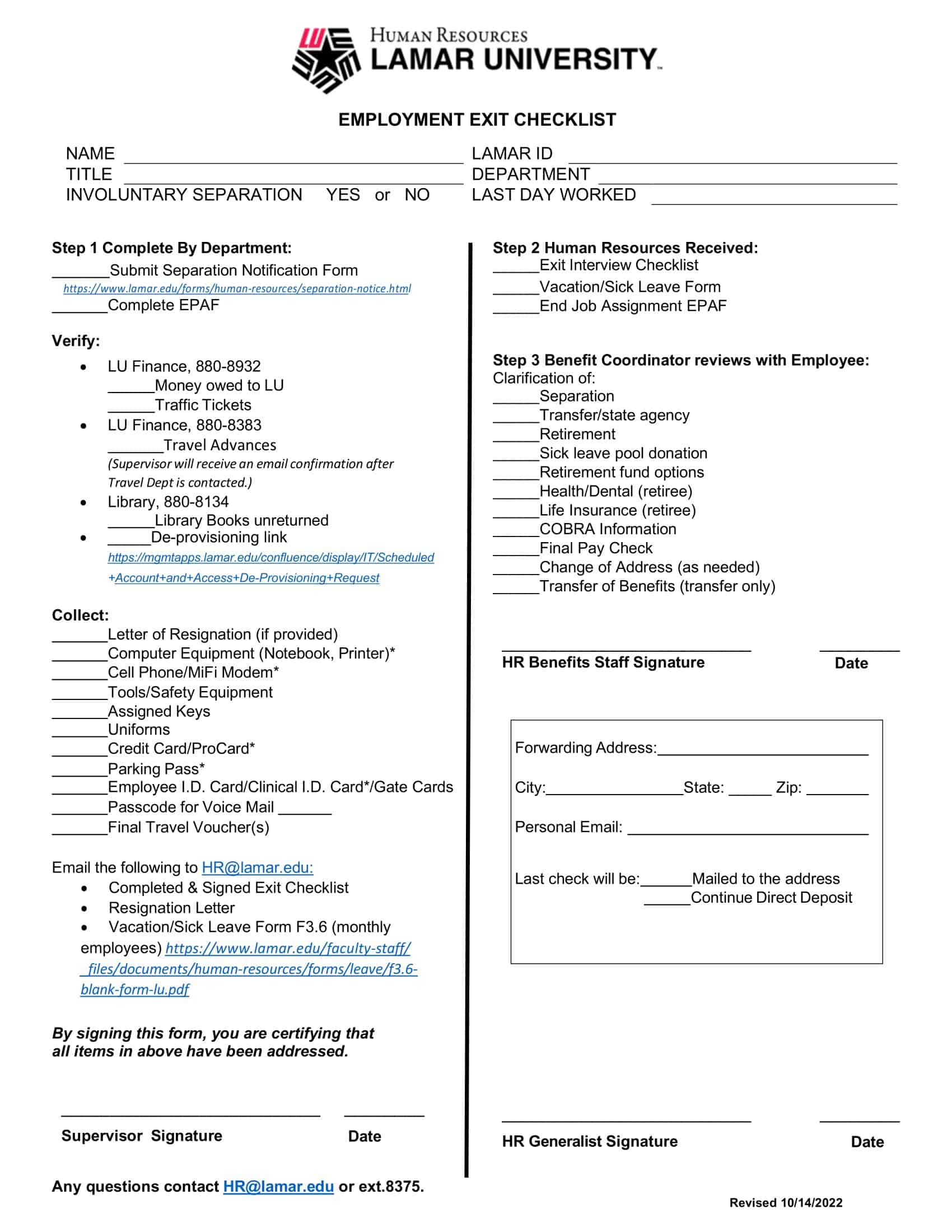

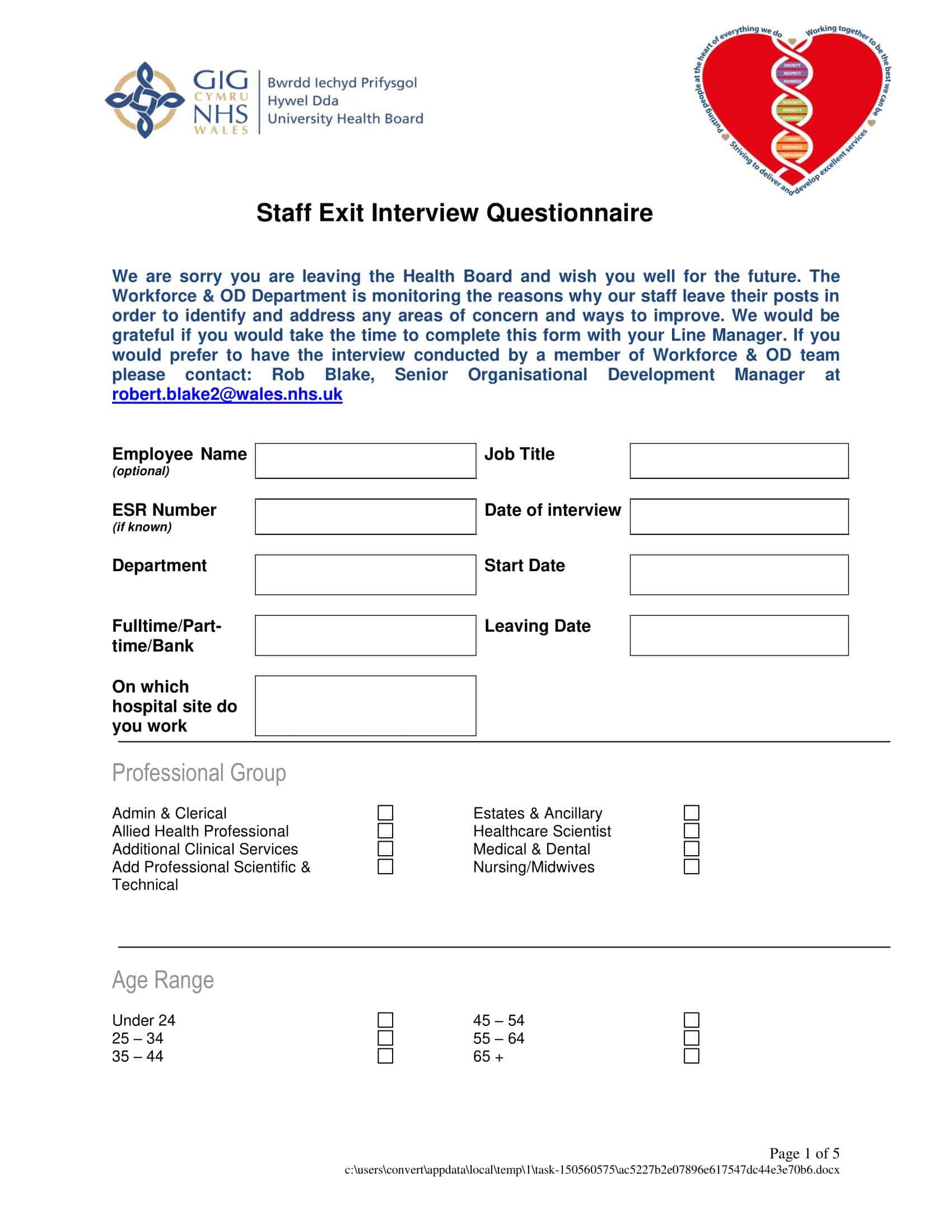
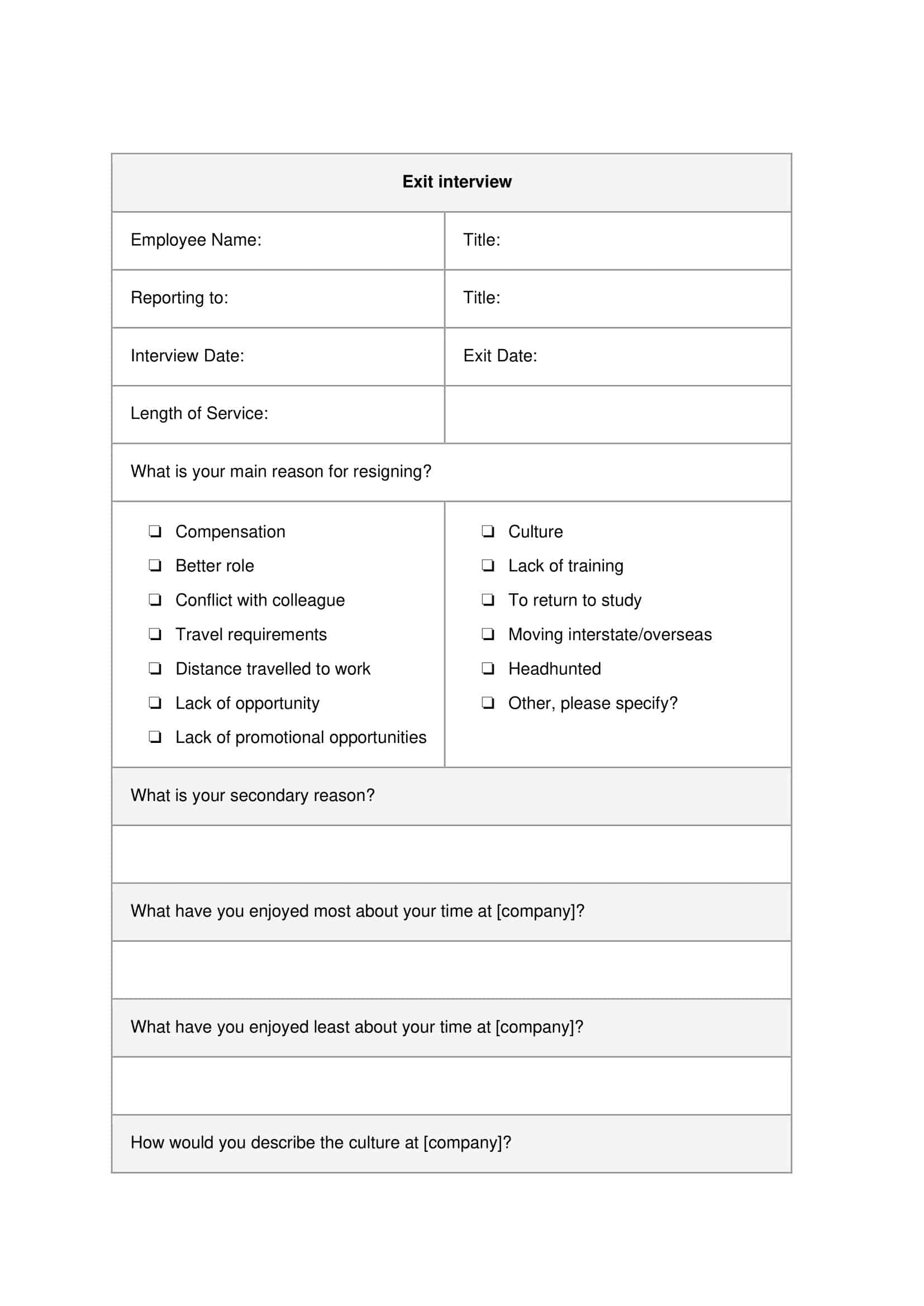
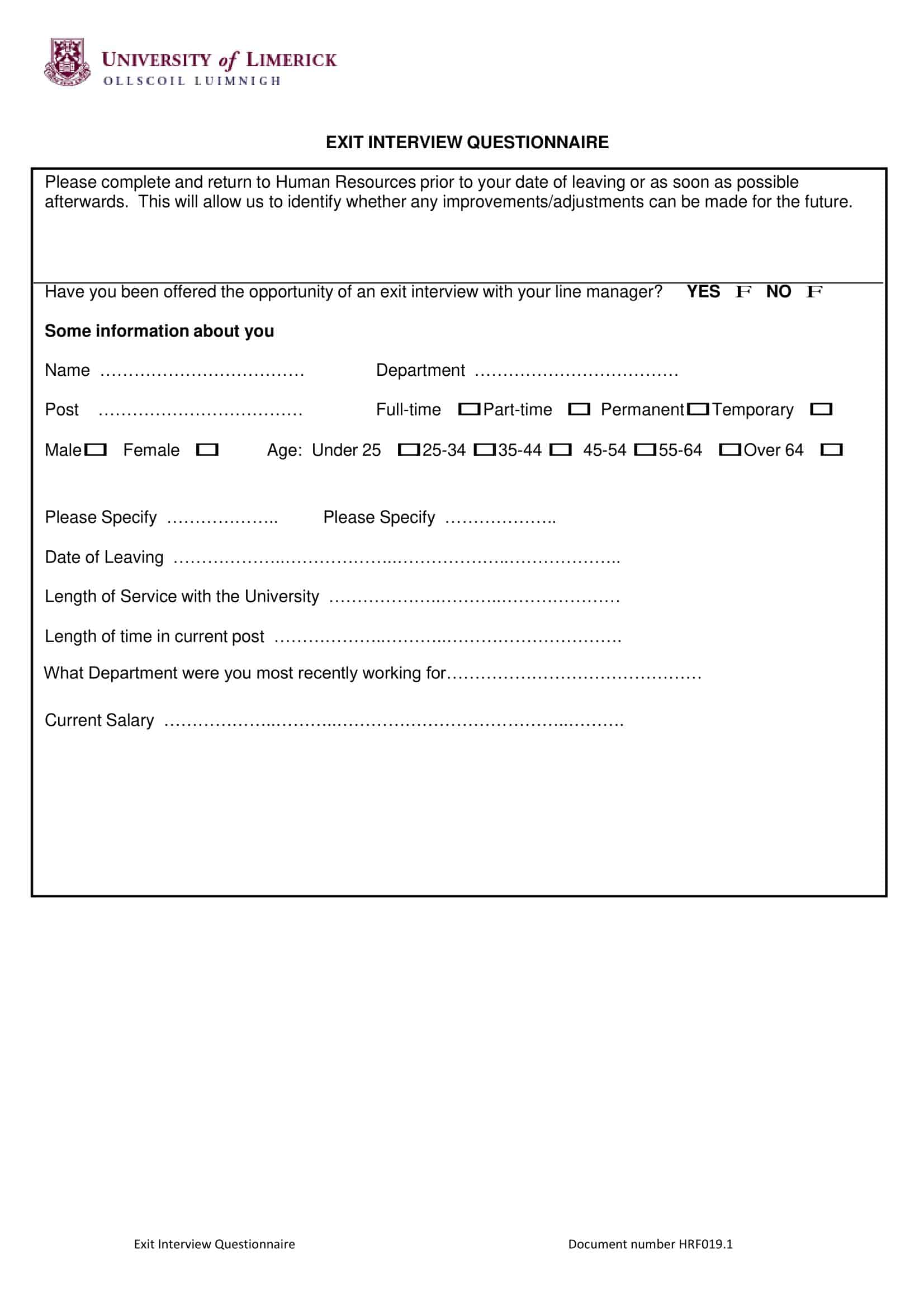
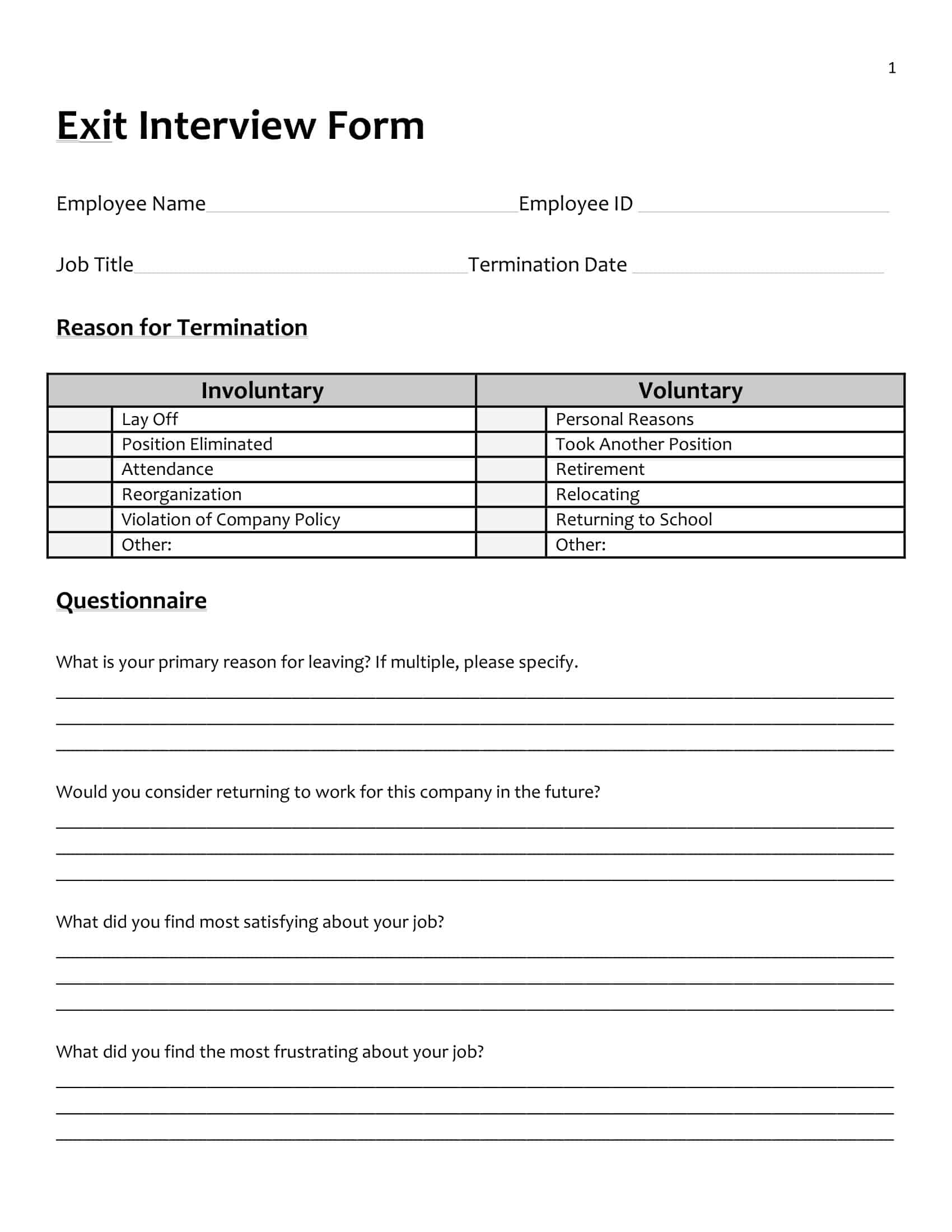
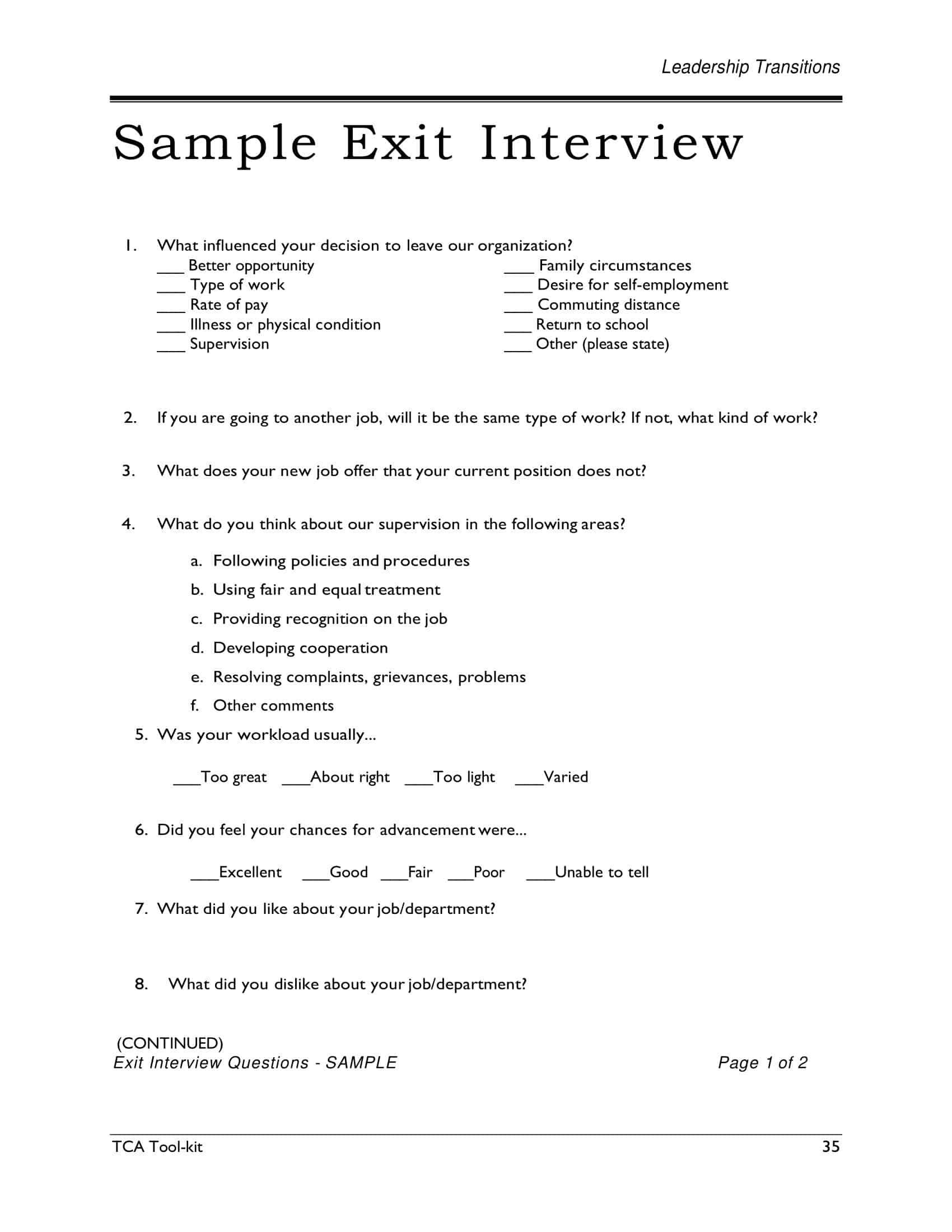
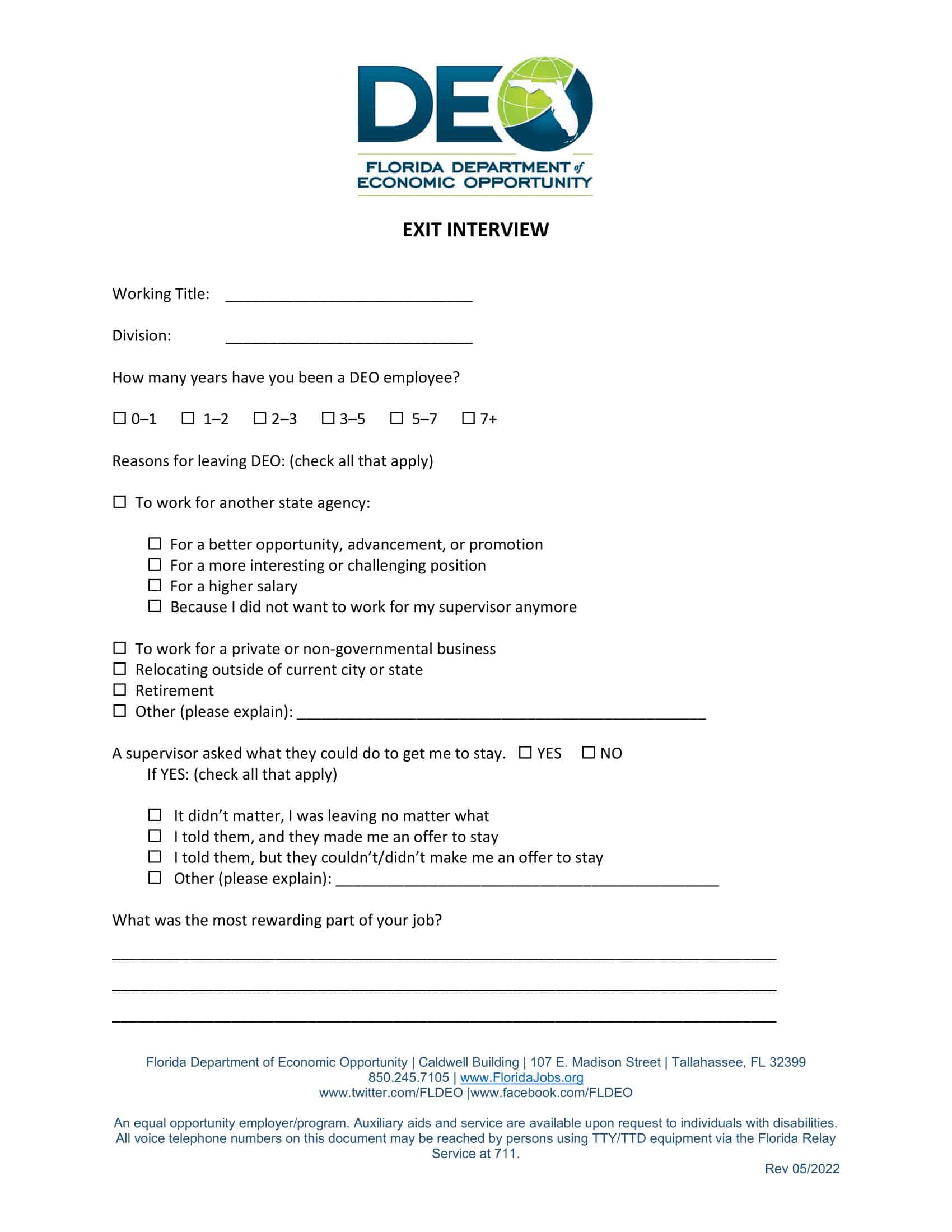

![Free Printable Roommate Agreement Templates [Word, PDF] 1 Roommate Agreement](https://www.typecalendar.com/wp-content/uploads/2023/06/Roommate-Agreement-150x150.jpg)
![Free Printable Credit Card Authorization Form Templates [PDF, Word, Excel] 2 Credit Card Authorization Form](https://www.typecalendar.com/wp-content/uploads/2023/06/Credit-Card-Authorization-Form-150x150.jpg)
![Free Printable Stock Ledger Templates [Excel,PDF, Word] 3 Stock Ledger](https://www.typecalendar.com/wp-content/uploads/2023/08/Stock-Ledger-150x150.jpg)
